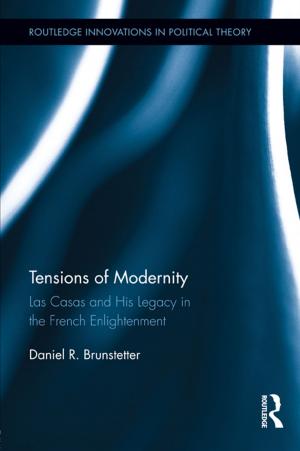| Author: | Teresa Brennan | ISBN: | 9781134982837 |
| Publisher: | Taylor and Francis | Publication: | September 11, 2002 |
| Imprint: | Routledge | Language: | English |
| Author: | Teresa Brennan |
| ISBN: | 9781134982837 |
| Publisher: | Taylor and Francis |
| Publication: | September 11, 2002 |
| Imprint: | Routledge |
| Language: | English |
Lacan was not an ahistorical post-structuralist. Starting from this controversial premiss, Teresa Brennan tells the story of a social psychosis. She begins by recovering Lacan's neglected theory of history which argued that we are in the grip of a psychotic's era which began in the seventeenth century and climaxes in the present.
By extending and elaborating Lacan's theory, Brennan develops a general theory of modernity. Contrary to postmodern assumptions, she argues, we need general historical explanation. An understanding of historical dynamics is essential if we are to make the connections between the outstanding facts of modernity - ethnocentrism, the relationship between the sexes and ecological catastrophe.
Lacan was not an ahistorical post-structuralist. Starting from this controversial premiss, Teresa Brennan tells the story of a social psychosis. She begins by recovering Lacan's neglected theory of history which argued that we are in the grip of a psychotic's era which began in the seventeenth century and climaxes in the present.
By extending and elaborating Lacan's theory, Brennan develops a general theory of modernity. Contrary to postmodern assumptions, she argues, we need general historical explanation. An understanding of historical dynamics is essential if we are to make the connections between the outstanding facts of modernity - ethnocentrism, the relationship between the sexes and ecological catastrophe.















